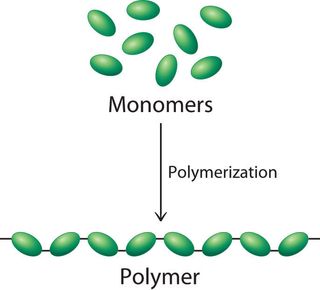Comprehending Polymers: The Science Behind Versatile Products
Comprehending Polymers: The Science Behind Versatile Products
Blog Article
Checking Out the Varied Applications and Benefits of Polymers in Different Industries
Polymers, with their varied range of homes and functionalities, have actually ended up being vital in numerous industries, each gaining special benefits from their application. From improving safety and performance in the automobile market to transforming medical gadgets in the medical care sector, polymers play a pivotal function.
Automotive Sector Applications
Polymers play a pivotal role in enhancing the efficiency and durability of different elements within the automobile sector. One popular use of polymers in the vehicle industry is in the manufacturing of lightweight components.

Health Care Market Advantages
In different healthcare applications, the benefits of using polymers are extensively recognized for their varied variety of helpful residential or commercial properties. Polymers play an important duty in the healthcare market as a result of their versatility, biocompatibility, and cost-effectiveness. Among the key benefits of polymers in medical care is their ability to be customized to specific requirements, such as versatility, sturdiness, and biodegradability, making them ideal for a variety of medical applications.
Polymer-based materials are extensively made use of in clinical gadgets, such as catheters, implants, prosthetics, and medicine shipment systems, due to their biocompatibility and ability to mimic all-natural cells. These materials can reduce the threat of sensitive responses or rejections, enhancing person safety and security and outcomes. Additionally, polymers are light-weight, making them suitable for wearable clinical tools and ensuring individual comfort.
In addition, polymers allow the advancement of ingenious treatment methods, such as hydrogels for cells engineering and nanocomposites for targeted drug shipment. Their convenience of processing and sanitation makes them essential for preserving high standards of hygiene in healthcare setups. Overall, the diverse advantages of polymers contribute dramatically to developments in clinical modern technology and patient care.
Ecological Benefits of Polymers

In addition, polymers can add to power financial savings because of their light-weight nature. In markets such as transport, lightweight polymer materials can help in reducing fuel consumption and greenhouse gas discharges. Additionally, polymers can enable the growth of energy-efficient products such as insulation products that improve energy preservation in structures.
Moreover, polymers play an important role in lowering water pollution. The usage of polymer-based filtration systems can effectively remove contaminants and impurities from wastewater, safeguarding water resources and ecosystems. In general, the ecological benefits of polymers make them valuable assets in promoting sustainability and eco-friendly techniques across various industries.
Polymers in Electronics and Modern Technology
Thinking about the boosting demand for cutting-edge and lasting solutions in modern-day industries, the combination of innovative polymer modern technologies in the realm of electronic devices and innovation has actually arised as a crucial strategy for driving efficiency and efficiency. Polymers have actually changed the electronics industry by making it possible for the manufacturing of lighter, extra adaptable, and long lasting digital gadgets. From smartphones to clinical tools, polymers play an essential role in improving item design and performance.
One significant advantage of polymers in electronic devices is their shielding homes, which aid shield fragile digital components from ecological factors and electric interference. Additionally, polymers are important in the advancement of flexible screens, wearable modern technology, and published electronics, using limitless possibilities for creating wise and interconnected devices.
In addition, the use of polymers in electronic packaging has actually caused innovations in miniaturization and thermal administration, enhancing the total efficiency and integrity of digital systems. As innovation remains to evolve, the convenience and versatility of polymers will definitely drive further development in the electronic devices market, shaping the future of modern technology.
Role of Polymers in Building and Facilities
The combination of innovative polymer products in building and construction and framework tasks has reinvented the means frameworks are designed and check my source constructed in modern-day times. Polymers offer numerous benefits in the building and construction market because of their versatility, longevity, and cost-effectiveness. One key role of polymers in building is their usage in layers and sealers, giving this hyperlink security against environmental variables such as wetness, UV radiation, and rust. Furthermore, polymers are made use of in the production of light-weight and high-strength composite materials, boosting the architectural stability of buildings while minimizing general weight.
In addition, polymers play an important role in sustainable construction techniques by allowing the advancement of energy-efficient structures. Protecting products made from polymers aid regulate indoor temperatures, lowering the requirement for heating and cooling down systems and eventually reducing energy intake. In addition, using polymer-based composites in infrastructure tasks such as bridges and roadways improves their longevity and decreases maintenance prices. Generally, the unification of polymers in building and facilities showcases their significant influence on modern design techniques.
Conclusion
To conclude, polymers play an essential role in various markets such as automobile, health care, environmental, electronics, and building and construction. Their functional residential or commercial properties make them valuable in producing ingenious services and items. From improving fuel effectiveness in cars to improving clinical gadgets, polymers offer numerous advantages. In addition, their influence on go to my site reducing waste and promoting sustainability highlights their value in modern-day applications. The prevalent use of polymers demonstrates their considerable contribution to progressing innovation and boosting top quality of life.
Report this page